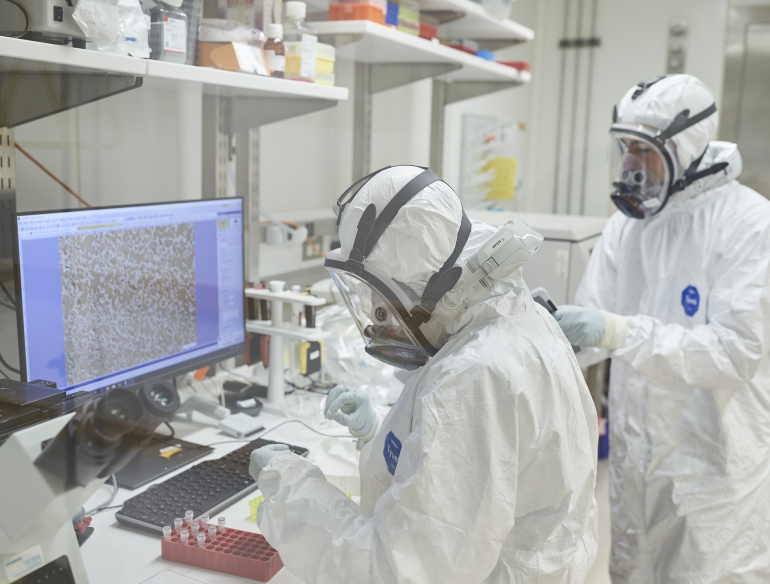Immunovirology is the study of how the immune system interacts with disease-causing viruses. These viruses can cause short-lived illnesses, such as influenza, or chronic infection, such as HIV or hepatitis C virus (HCV).
Immunovirology looks at the nuts and bolts of how the body responds to infectious diseases, right down to the molecular level. By understanding the minute details of a viral life cycle and the complex immune responses it prompts, researchers can use this knowledge to develop tests, treatments, cures or vaccines to promote good health.
The Kirby Institute has conducted leading immunovirology research since the early days of the HIV/AIDS epidemic and from the first discovery of HCV as a common cause of hepatitis, (inflammation of the liver). We have made significant contributions to the understanding of the earliest phase of HIV infection, and provided insights that informed the antiretroviral therapies currently used to treat HIV/AIDS. We have played a key role in making Australia a world leader in the goal to eliminate hepatitis C infection by 2030.
More recently, our researchers have developed unique ways to examine SARS-CoV-2, the virus which leads to COVID-19 disease. Through this work, they were able to define long-term immunity to COVID-19, both in the setting of natural infection (i.e., following infection with SARS-CoV-2) and through vaccination. This work continues to inform policy and guidelines on how we manage COVID-19 nationally and internationally.
Much of our immunovirology research takes place in the Kirby Institute’s Glendonbrook Laboratories. The labs include our state-of-the-art PC3 laboratory, the highest containment laboratory on the UNSW campus.
We work collaboratively with partners at the St Vincent’s Centre for Applied Medical Research, the diagnostic molecular virology laboratories of NSW Health Pathology and a number of Australian and international groups with current collaborations with groups based in the United States, the United Kingdom, Japan, Papua New Guinea and Thailand.
Key features of our immunovirology work include:
- Our laboratory scientists support the successful conduct of clinical trials and epidemiological studies. This includes processing specimens and conducting specialised immunological and virological tests.
- We conduct clinical trials and natural history studies in populations of people with HIV, HCV, HPV and SARS-CoV-2.
- We conduct a variety of research projects related to the mechanisms of disease and the development of therapies and vaccines.
- Through studying pathogens and how they interact with our immune system, we can use this knowledge to develop tools to edit genes within our immune system.
Programs working in this area:
- Immunovirology and Pathogenesis Program
- Therapeutic and Vaccine Research Program
- Viral Immunology Systems Program
- Viral Hepatitis Clinical Research Program
- Infection Analytics Program
